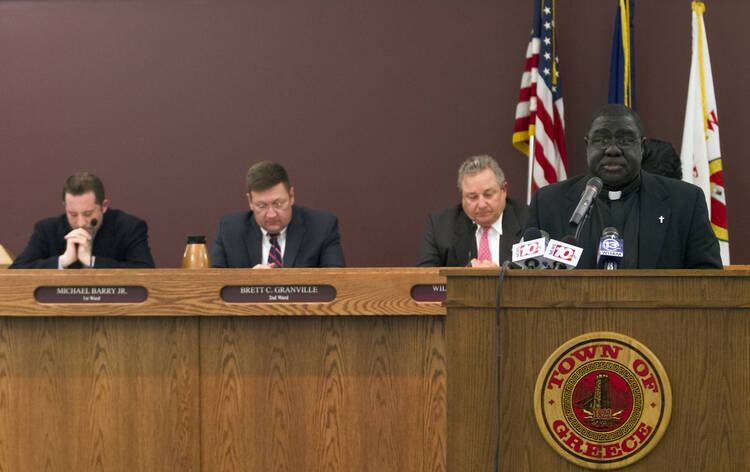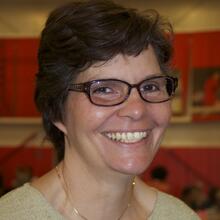On May 5, 2014, the U.S. Supreme Court decided in a 5-4 vote that the Town of Greece, New York, did not violate the First Amendment when it invited local clergy to pray before the opening of town board meetings. Significantly, all nine justices affirmed the constitutionality of public legislative prayer. As Justice Elena Kagan wrote in her dissent, a town hall “need not become a religion-free zone.” The devil is in the details, however, and the justices divided on the constitutionality of the prayers offered and the religious diversity of those who offer them.
The majority opinion, written by Justice Anthony Kennedy, emphasizes the role public prayer played in the formation of our nation and affirms the unique role of religion in the American political process. He movingly recounts the invocation of prayer at the First Continental Congress and notes its efficacy for uniting rather than dividing the participants.
[A] local Anglican minister, . . . appeared in full “pontificals” and delivered both the Anglican prayers for the day and an extemporaneous prayer. For many of the delegates—members of religious groups that had come to America to escape persecution in Britain—listening to a distinctively Anglican prayer by a minister of the Church of England represented an act of notable ecumenism. But Duché’s prayer met with wide approval—John Adams wrote that it “filled the bosom of every man” in attendance—and the practice was continued.
To this day, both the U.S. Senate and House of Representatives employ chaplains and prayers are said at each opening session. In 1983, the U.S. Supreme Court extended the right of public legislative prayer to state legislatures and now, in Town of Greece v. Galloway, the right is acknowledged for local legislative bodies as well. The entire court agrees on this point, but split on the specific facts of the case.
The dissenters (Breyer, Ginsburg, Kagan, and Sotomayor) found the town board’s actions favored one religion, in this case Christianity, and were coercive because ministers called upon members of the public who had business before the town board to join in prayers that were said immediately prior to the town board deciding that business. The majority agreed it would be unconstitutional for a legislature to actively limit public prayer to one denomination or show favoritism toward members of a religious group, but determined the Constitution does not require local legislatures to go outside their geo-political boundaries to guarantee religiously diverse public prayer and does not insulate adults from decidedly sectarian religious language.
The case makes it easier for local legislative bodies to engage in public prayer, but the dissent reminds us this could mean “government officials in a predominantly Jewish community [may ask] a rabbi to begin . . . public functions with a chanting of the Sh’ma and V’ahavta (‘Hear O Israel! The Lord our God, the Lord is One. . . . Bind [these words] as a sign upon your hand; let them be a symbol before your eyes; inscribe them on the doorposts of your house, and on your gates.’), and an imam “in a mostly Muslim town . . . to commence such functions . . . with a recitation of the Adhan (‘God is greatest, God is greatest. I bear witness that there is no deity but God. I bear witness that Muhammed is the Messenger of God).”








